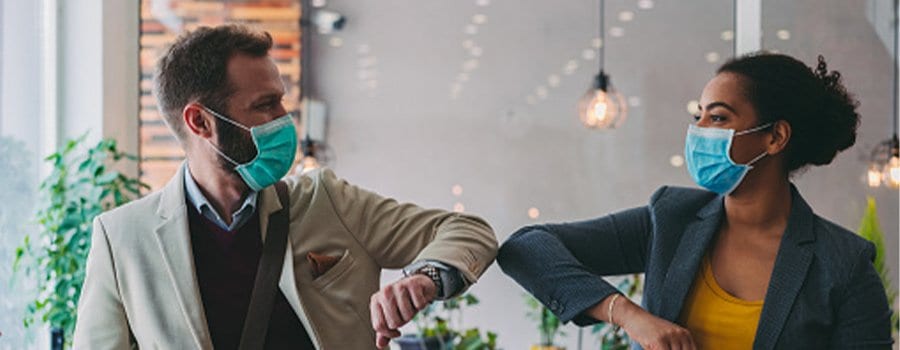While the health and wellbeing of employees is certainly top of mind for human resources teams due to the COVID-19 nationwide emergency, questions linger about many aspects of hiring and workforce management. The Department of Labor Occupational Safety and Health Administration has issued quite a few guidelines for social distancing, teleworking, and maintaining a healthy workforce during this time, but what does HR need to know specifically about pre-employment screening and onboarding protocols?
What to Know About Pre-Employment Screening During COVID-19
Employers must continue to adhere to the guidelines of the Americans with Disabilities Act but, during a pandemic, the Equal Employment Opportunity Commission provides updated information about ADA applications. The Pandemic Preparedness in the Workplace and the Americans with Disabilities Act publication has been updated to clarify some common questions related to COVID-19.
- Job candidates may be screened for COVID-19 after a conditional job offer is made and as long as all new hires for the same type of job are also screened. Disability status is not a factor for this type of medical screening.
- Temperature taking is considered an acceptable part of a pre-employment medical screening but, as with all pre-employment medical screenings, it is permitted as part of a post-offer exam only.
- Employers may delay an candidate’s start date if they have COVID-19 or its symptoms.
- Employers may withdraw a job offer if an candidate needs to start immediately but has tested positive for COVID-19.
- Employers may not postpone a start date or withdraw a job offer if an candidate is in a high-risk category for COVID-19 complications. Although, candidates in these categories can choose to accept accommodations like a later start date or a teleworking option.
Additional details about these and other guidelines are included in the Pandemic Preparedness in the Workplace publication. Follow the link for information and additional resources related to hiring and workforce management during COVID-19.
What to Know About Onboarding New Hires Remotely During COVID-19
Office closures and social distancing have had a direct effect on the identity verification of new employees. Fortunately, some temporary accommodations have been made for remote hiring and deadline extensions.
- Form I-9 typically requires an in-person inspection of documents, but the Department of Homeland Security has waived that requirement temporarily. DHS suggests viewing the documents via video conference, fax, email, etc. before obtaining copies and completing Section 2. Once normal business operations resume, though, there must be a physical inspection of the same documents and additional information added to the form. Visit ice.gov for more details about this temporary change to Form I-9 requirements. E-Verify has also issued a temporary policy on expired List B identity documents.
- E-Verify has extended the time allowed to take action for resolution of Tentative Nonconfirmations (TNCs) that will be delayed due to government office closures. Employers are still required to create a case in E-Verify within three business days from the employee’s date of hire. To claim the delay, select “Other” from the dropdown list and enter “COVID-19” as the reason. Additional info about delayed action for resolution of TNCs is available at e-verify.gov.
In Sickness and Health, We’re Here to Help
Ask ClearStar how our tech solutions can help your HR team manage and expedite new hire identification verifications, background checks, and medical screenings throughout this complicated time and far into the future.












